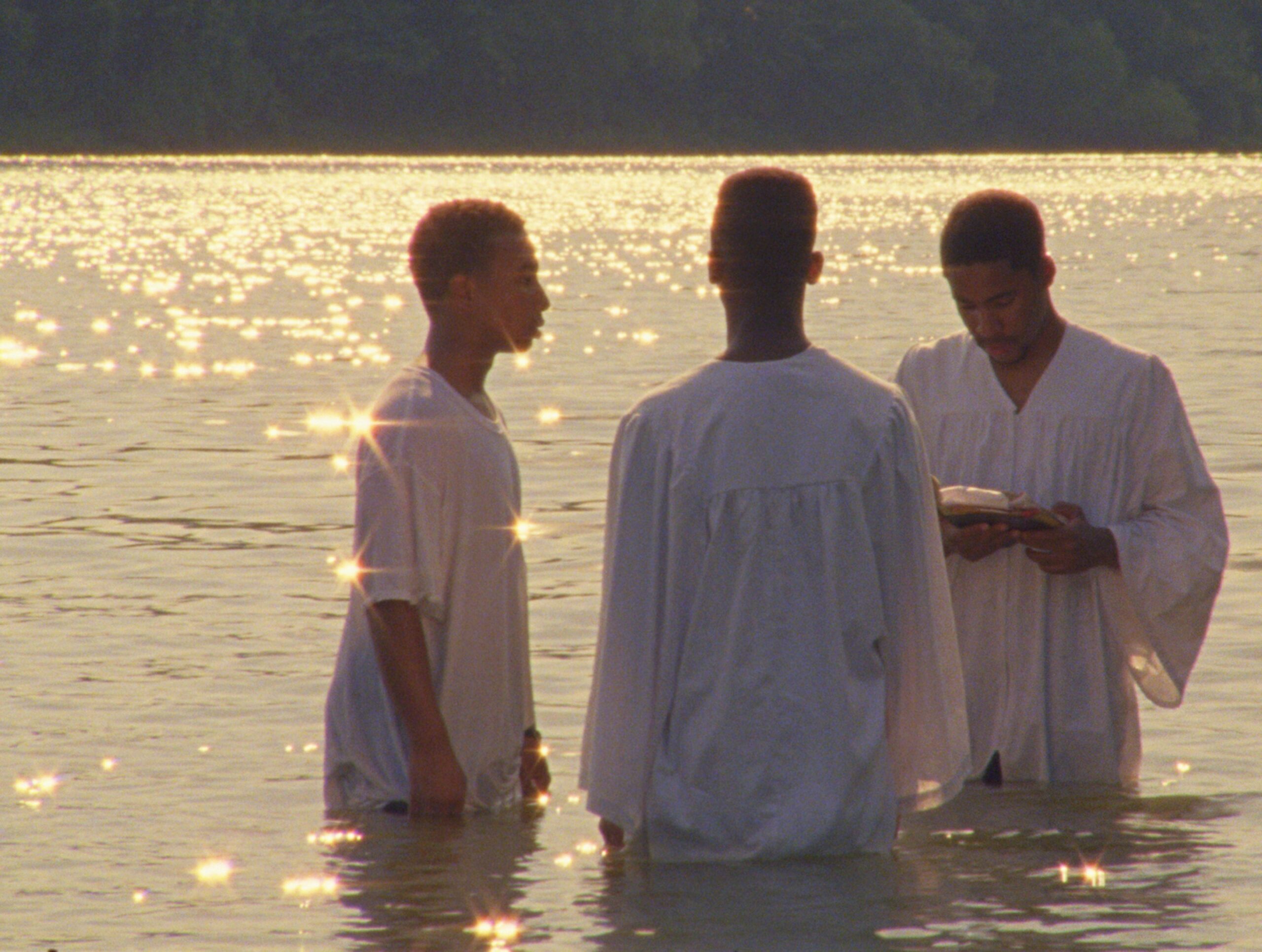Coincidentally or not, Sarvnik Kaur’s new documentary Against the Tide arrives just one year after Shaunak Sen’s acclaimed 2022 doc All That Breathes. The two form a diptych of sorts — both are Sundance premieres, and each grapples with social and environmental issues in modern-day India as refracted through the relationship between two men, here life-long best friends Rakesh and Ganesh. Beginning with the birth of Rakesh’s son and ending with the birth of Ganesh’s, Against the Tide compresses roughly a year of the two men’s respective lives into a 90-minute narrative that charts the tumultuous ups and downs of their day-to-day existence. Both men are Koli fishermen, a traditional Indian caste which dates back to at least the 15th century, but whose way of life is now slowly eroding in the face of epochal change. Rakesh is poor, using his father’s old hand-me-down boat to fish along the shallow coastlines. Ganesh is an upwardly mobile, middle-class businessman, having studied abroad in Scotland, and is now the owner of a large ship that requires a crew to venture into deep waters to make its catch.
Kaur gets a lot of mileage out of simply observing the two old friends at home and at work; Rakesh’s small, cramped shack, tattered clothes, and beaten-up boat stand in sharp contrast to Ganesh’s comparatively massive vessel, as well as his modern condo, stylish outfits, and sleek smartphone. But despite the outward trappings of success, Ganesh’s lifestyle comes at a cost, too. He’s massively in debt, borrowing money left and right to keep his crew on in the hopes that a big catch is coming soon. For his part, Rakesh can barely afford the doctor’s visits for his chronically ill baby, revealed in time to have a congenital heart defect. Both men are in dire straights, their plights exasperated by the increasingly small loads of fish each of their expeditions keep turning up. Climate change, an influx of Chinese boats, conflict with Pakistan, and good old-fashioned human malfeasance are all partly to blame; but whatever the cause, the men’s livelihoods are hanging by a thread.
On paper, Against the Tide might sound like a simplistic portrait of have vs. have not, but Rakesh and Ganesh are compelling subjects in their own right, both well aware of their grim situations and open with their spouses and each other about their fears. Far from wallowing in self-pity, the men are lively and proactive, willing to ask tough questions of each other and push back when necessary. The film is most compelling whenever Kaur and cinematographer Ashok Meena allow scenes to play out unadorned, simply observing events and allowing various details to accumulate.The actual fishing footage is breathtaking, occasionally flirting with the abstracted verisimilitude of Paravel and Castaing-Taylor’s Leviathan while still giving viewers a clear view of the labor involved, the nuts and bolts of fishing on both an industrial and an individual scale; men maneuvering these huge nets and the monumental effort it requires to haul them into and out of the water is a sight to behold. Scenes of Ganesh haggling in the harbor fish markets reveal how desperate everyone is, as buyers and sellers jockey for position and hope to chisel some kind of profit from one another. It’s a flurry of activity, a real glimpse into a part of the world with which most viewers will be unfamiliar.
A key subplot gradually emerges, as Ganesh questions whether or not to illegally use LED lights on his ship in an effort to net larger yields. Rakesh is adamantly opposed to the idea, noting that it is against the Koli tradition and leads to overfishing, leaving small operations like his own with nothing. Ganesh counters that they are both already catching nothing on a regular basis, while larger ships utilize LEDs one way or the other. It’s an ethical quandary played out as an intimate, interpersonal drama, and one that isn’t resolved in quite the way viewers might assume. This is a worthy film, fast-paced and teeming with ideas, and if it’s not ultimately optimistic about the future, it still highlights the values of ceremonial tradition and communal activity.
DIRECTOR: Sarvnik Kaur; CAST: —; DISTRIBUTOR: Deckert Distribution; IN THEATERS: November 24; RUNTIME: 1 hr. 37 min.
Originally published as part of InRO Weekly — Volume 1, Issue 4.







